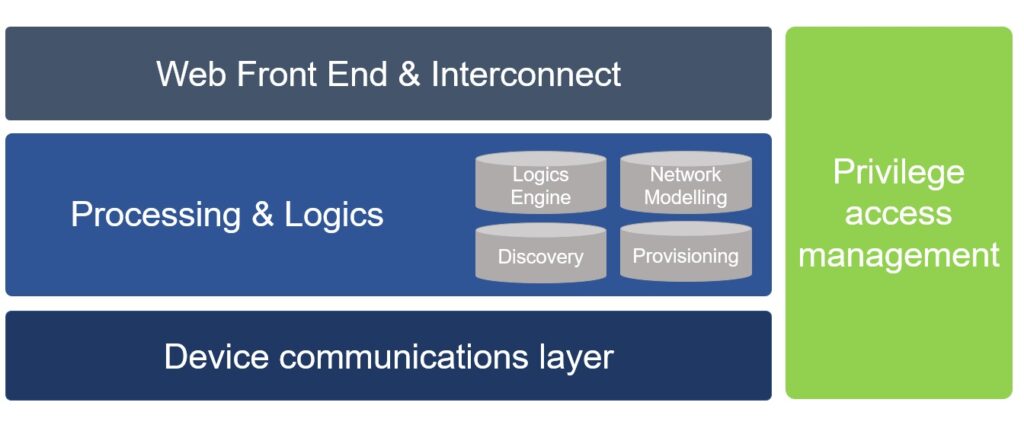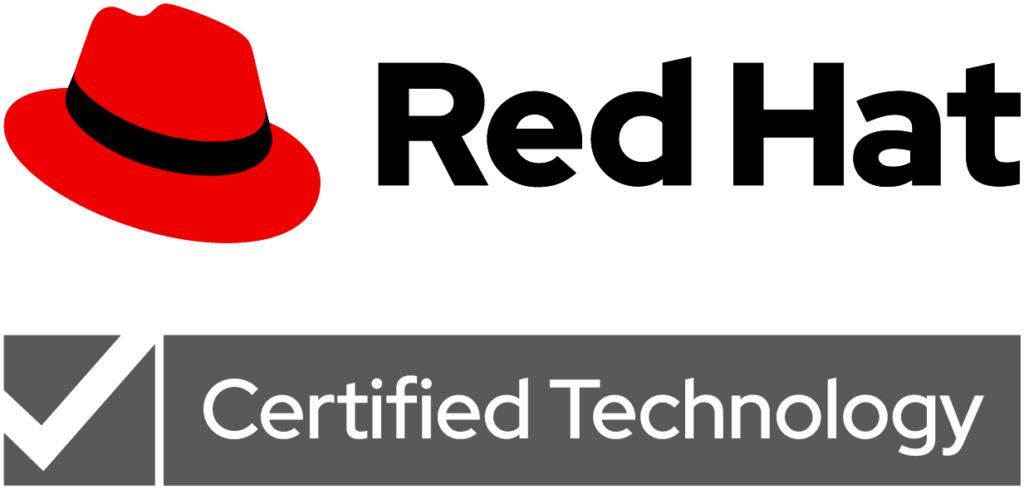InSync Automation Engine is a vendor agnostic software platform purpose built for network automation and orchestration. Platform has two versions, one for service provider and another for enterprise.
With InSync Automation Engine Service providers and Enterprises can provision or deprovision network services, compare network state, automate workflows, manage devices or services and build customized use-cases for superior customer experience, faster go-to-market and increased productivity.
Underneath the platform is a powerful python-based core that runs on virtual environment for flexible deployment across both on-premise or cloud.

Automated network operations must be reliable especially on critical operations. We understand that very need and have built our platform to be fault tolerant. As our platform supports a fully redundant distributed architecture, failures of every platform component are handled through a leader election algorithm. This ensures yours critical automated network operations are not impacted and run as scheduled.
Throughout its’ operation, InSync automation engine maintains transactional integrity. This means that a network will not be left at an unknown state once a task is executed. It will always be at the current or desired state. In case of a failed attempt, InSync platform will make sure it’s rolled back to the current state and alert leaving the network on an always known state. This is also known as the atomic nature of command execution and is achieved through granular state monitoring of tasks within a service.
InSync’s platform has a distributed architecture in order to cater service provider network complexities, scale and reliability. Platform supports scalability through multi-node deployment of components controlled through a cluster of distributed control nodes. Thus, platform architecture is fully redundant to cater reliability needs of a service provider and handles faster service fulfilment through distributed functionality.
Whilst we support many out of the box features, One of the main benefits of InSync automation engine is its ability to customize and on-board new services. InSync will make sure new devices are on-boarded, logics are customized, portals are customized, new services are on-boarded based on your need. Further widget-based dashboard can be customized and personalized depending on client requirements to visualize most relevant data per client.










InSync Automation Engine’s architecture consist of four modular components; device communication, processing & logic, web front end and interconnect and privilege access management. Each element has their own functionality and inter-operate to deliver end to end intended services. Product comes with out of the box features for discovery, provisioning and workflow and can be easily customized to cater different requirements.

Device communications layer consists of adaptors that communicate with devices over interfaces such as NETCONF, SSH and REST APIs in a vendor agnostic manner. Both read and write functions for managing, discovery and provisioning are enabled and executed through this layer. Different southbound interface options are available for both legacy and modern devices from vendors. This layer also supports feeds from SNMP, ST and logs for detailed network monitoring and analytics. Integration with network related services such as DHCP, DNS, IPAM is made possible via REST API.
Logic layer consist of the intelligence of InSync’s automation engine and contains functions such as processing of data collected through other modules. It’s responsible for network discovery, device modeling, network services modeling, service provisioning and validation. This is also the responsible component when it comes to creating custom logics and policy frameworks.
Privilege Access Management module takes care of all the system related functionalities of InSync Automation Engine. This module manages user authentication and authorization for role based access control, provides system management and software administration, reporting, log management, file management and many more.
Web front end runs all front end related tasks. This is the external facing portal that is used by both administrators and service users. In addition to its web-based user interface, this layer also consists of gateways that connects to third-party applications such as ticketing systems, OSS/BSS and CRM for external system integration.
Fully customizable, widget based web self care portals for administrators and customers
Visualization of network service topology such as L2/L3 VPNs with multiple topology types
Support for legacy and software defined devices through versatile adapters such as SSH, SNMP, NETCONF, ST & REST API support
Granular control through role based access control
Integration of third party systems through APIs
Ability to provision network services on-demand or scheduled in an atomic fashion
Customizable widget based dashboards, tailor made for user requirements
Periodic or on-demand reports through detailed reporting and logging history for troubleshooting

